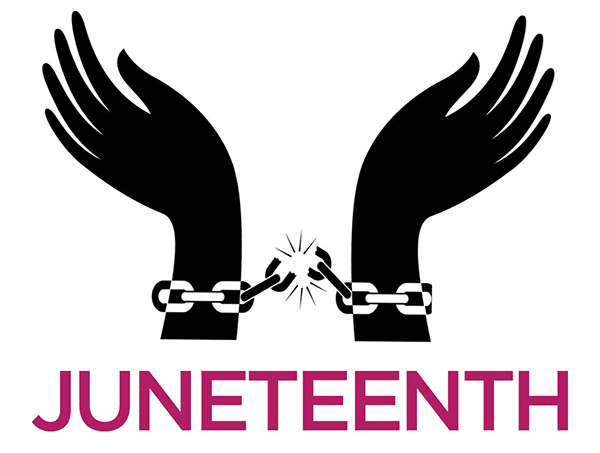Juneteenth is a commemoration African-American emancipation from slavery. Its celebration helps to center the importance of the past as a source of knowledge and as a compass by which to navigate the roiling waters of racial oppression. Remembering emancipation from slavery helps keep our minds focused on contemporary liberation.
For the enslaved, freedom came only after Union troops defeated the Confederacy where they dwelled. Thus, knowledge of abolition reached different regions at different times between the Jan. 1, 1863, issuance of the Emancipation Proclamation and the Dec. 18, 1865, ratification of the 13th Amendment. The last areas to learn of the Emancipation Proclamation were the southwestern states and territories.
The Confederate Army in Texas did not surrender until June 2, 1865. On June 19th — or Juneteenth — a quarter of a million African-Americans learned of the Emancipation Proclamation when Maj. Gen. Gordon Granger read General Order No. 3, which states, “The people of Texas are informed that, in accordance with a proclamation from the Executive of the United States, all slaves are free.”
The next year, 1866, freedpeople in Galveston, Texas sponsored the first Juneteenth commemoration. They celebrated freedom as a time to rejoice and reflect. Picnics, barbeques, and sports contests were combined with more solemn observations. They sang spirituals, read the Emancipation Proclamation, and they listened to speakers assess the state of the race and plot a path forward. For the freedpeople, emancipation meant elevating the race. Education and organization were the keys.
A 12 year-old Richard Robert Wright Sr.’s reply to retired General O.O. Howard embodied the dominant sentiment. When Howard visited Storr’s School, an Atlanta institution for freedpeople in 1868 he asked students what should he tell northern students about them. The precocious Wright answered, “Sir, tell ’em we’re rising.”
Indeed, in the wake of emancipation, African-Americans were rising. In Christopher M. Span’s cogent phrase freedpeople sought “liberation through literacy.” In Texas and elsewhere, African-Americans built thousands of schools and colleges and churches. They also established thousands of associations, leagues, clubs, organizations, militias, businesses, banks, hospitals and newspapers. And they built communities, constructing neighborhoods in white dominated towns and cities and erecting all-black towns free from direct white control.
Freedom consciousness demanded elevation, self-development, self-defense and self-determination.
As blacks fled the South during the first (1910-30) and second (1940-70) great migrations, they spread Juneteenth throughout the U.S. and the world. Yet, during the Civil Rights movement, Juneteenth, like the January 1st commemorations, struggled, as their story fit uncomfortably with that movement’s integrationist narrative. Revived, ironically by the failure of Dr. King’s Poor Peoples March, over the last 25 years, Juneteenth has become African-Americans’ preferred memorialization of the coming of freedom.
Currently, it is an official or ceremonial holiday or special day of observance in 45 states and the District of Columbia. Since the 2006 Barack Obama sponsored resolution, the U.S. Senate has annually recognized the African-American commemoration as “Juneteenth Independence Day.” However, the U.S. House stopped issuing resolutions supporting Juneteenth after the tea party led-Republican Party seized control in 2010. Nonetheless, it has effectively become a second tribute to U.S. independence.
Juneteenth is not just a day in the park. It memorializes the most significant event in African-American history, what W.E.B. Du Bois in the magnificent “Black Reconstruction in America, 1860-1880” calls “the coming of the Lord,” the destruction of slavery.
According to the Rev. Dr. Ronald V. Meyers, chairman of the National Juneteenth Observance Foundation, it is “a time of celebration, but also a time of reflection, healing, and hopefully a time for the country to come together and deal with its slave legacy.” As the foundation continues the fight to the make Juneteenth an official federal holiday, Meyers contends, “we need this holiday to remind us that we must not forget.”
The notion of remembrance Meyers evokes ties the past to the present. In perhaps his most radical poem, Langston Hughes also addressed the power of memory. In “Air Raid Over Harlem,” of the slumbering millions of blacks, he observes “And maybe remembers/And remembering forgets/To be peaceful and quiet.” For Hughes, knowledge of the past stimulates contemporary struggle.
Meanwhile, remembrance for Meyers serves to remind us that slavery, however horrible, was but the form racial oppression took from 1619-1865. The Civil War abolished that particular form but racial oppression did not die, it transformed. Its new form had the dominant characteristics of sharecropping, convict lease, apartheid and lynching. It has transformed three more times since emancipation.
For Hughes, remembrance serves to highlight the need to continue the struggle. Most of all memorials should remind us of how our ancestors responded. It is in our forbearers’ responses to Emancipation then that we should find clues to how the living generations of black people should pursue liberation now.
In a time of rampant racial terrorism newly emancipated blacks created the Union League and several state-level protective leagues.
At a moment in which 90 percent of blacks were illiterate. they built thousands of schools. When the presentation of blacks in the media reflected contempt, emancipation-era African Americans launched a conscious political education project built around independent newspapers, magazines, commemorations and mass meetings.
Liberation now demands a similar commitment to mass political education and organization.
Sundiata Cha-Jua is a professor of African-American studies and history at the University of Illinois and is a member of the North End Breakfast Club. His email is [email protected].

